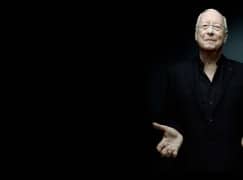William Christie throws out audience member whose phone went off
mainAt the national auditorium in Madrid, Wednesday’s performance of Handel’s Messiah was interrupted by a mobile phone going off in a side-row close to the stage during the aria, He was despised.
‘Out!’ yelled Christie at the phone owner. ‘You have just ruined one of the most beautiful passages of one of the most beautiful works ever written.
Full report here (in Spanish).






Comments